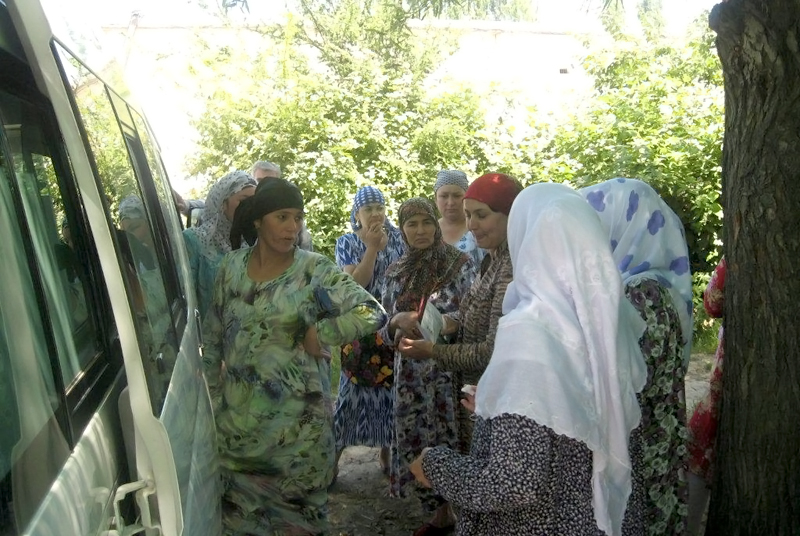
“In May 2013, when we began outreach work among migrants and their wives in Dushanbe, I was sure that the population of the nation’s capital would be better informed about sexually-transmitted diseases, HIV, and how to access information about these diseases than other cities and regions of the country. After performing a preliminary assessment of the project group, however, we understood that it was necessary to do more work in the remote area close to the eastern hills of the city,” Sadbarg, an outreach worker from the NGO “Positive Center,” said.
Conversations with more than 700 beneficiaries revealed that none of them had received testing for HIV. Along with their work of informing the population about HIV/AIDs, sexually transmitted diseases, and tuberculosis, the co-workers for the NGO “Positive Center” in cooperation with the City Center for Prevention and Control of AIDs organized mobile consultations with representatives of HIV testing services to these remote areas.
“When I learned that I could be tested for HIV, I went immediately to the mobile consultations for testing, because my husband and I are still young and we plan to have children. I want my children to live healthy lives. As a mother, this is very important to me, because we are responsible for the health of our children,” one of the program participants shared.
In total, 105 people, among them labor migrants and their wives, came to receive consultations and voluntary testing for HIV. The project beneficiaries thus saw the quality services provided by representatives of the City Center for Prevention and Control of AIDS and were also able to learn about their own health status.
The project was financed by the United Nations Development Programme as the principal recipient of the Global Fund to Fight Aids, Tuberculosis, and Malaria, and the International Organization for Migration in Tajikistan.